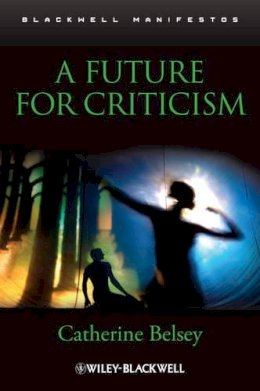
Stock image for illustration purposes only - book cover, edition or condition may vary.
Future for Criticism
Catherine Belsey
€ 96.11
FREE Delivery in Ireland
Description for Future for Criticism
A Future for Criticism offers an original approach to the pleasures of fiction, and puts forward an explanation for the neglect of these pleasures in contemporary criticism. Series: Wiley-Blackwell Manifestos. Num Pages: 160 pages, black & white illustrations. BIC Classification: DSA. Category: (P) Professional & Vocational. Dimension: 234 x 152 x 14. Weight in Grams: 378.
A Future for Criticism considers why fiction gives so much pleasure, and the neglect of this issue in contemporary criticism.
A Future for Criticism considers why fiction gives so much pleasure, and the neglect of this issue in contemporary criticism.
- Offers a brief, lively, and accessible account of a new direction for critical practice, from one of Britain's most prominent literary theorists and critics
- Proposes a new path for future criticism, more open to reflecting on the pleasures of fiction
- Written in a clear, jargon-free style, and illustrated throughout with numerous examples
Product Details
Publication date
2011
Publisher
John Wiley and Sons Ltd United Kingdom
Number of pages
160
Condition
New
Series
Wiley-Blackwell Manifestos
Number of Pages
160
Format
Hardback
Place of Publication
Hoboken, United Kingdom
ISBN
9781405169578
SKU
V9781405169578
Shipping Time
Usually ships in 7 to 11 working days
Ref
99-50
About Catherine Belsey
Catherine Belsey is a research professor in English at Swansea University, UK. Her principal publications include Shakespeare in Theory and Practice (2008), Why Shakespeare? (2007), Critical Practice (1980, 2002), Poststructuralism: A Very Short Introduction (2002) and Desire: Love Stories in Western Culture (1994).
Reviews for Future for Criticism
"The unbuttoned directness of this little book is invigorating." - Jean E. Howard (Shakespeare Studies, 2013) "A Future for Criticism issues a challenge to critics that really amounts to having the courage of our convictions and sticking to what we're good at, resisting the encroachments of history and psychology, and having 'confidence in the independent capabilities of criticism' (76) ... Read more
